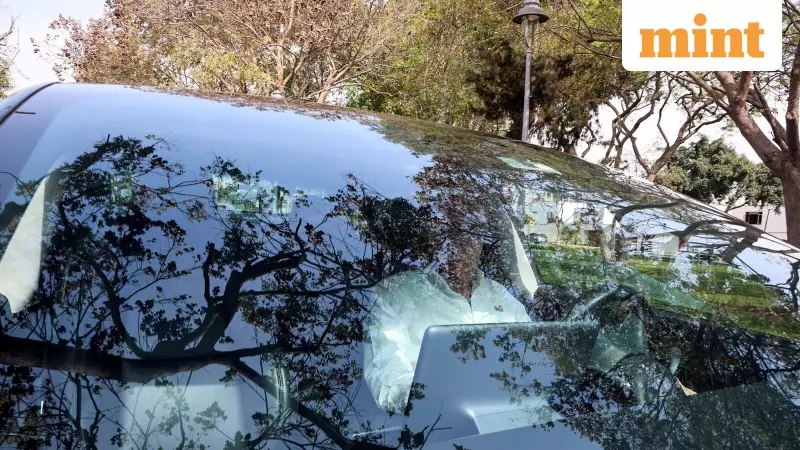
Many Indian car owners seeking relief from scorching heat and increased privacy instinctively turn to tinted glass films for their vehicles. However, what appears to be a practical upgrade is actually a punishable offense under Indian law.
Why Tinted Glass Films Are Banned in India
The Supreme Court of India implemented a comprehensive ban on all aftermarket tinted glass films in vehicles back in 2012. This decision wasn't made arbitrarily but was rooted in significant security and safety concerns that affect both law enforcement and general public safety.
Heavily tinted windows create a shield of anonymity for vehicle occupants, making it difficult for police to identify individuals inside cars during routine checks or criminal investigations. This privacy feature that consumers desire becomes a major security risk, potentially enabling criminal activities.
Beyond security issues, tinted films pose serious safety hazards. They can significantly obstruct driver vision, especially during nighttime driving or in poor weather conditions. This reduced visibility increases the risk of accidents, endangering not just the vehicle occupants but other road users as well.
What the Law Actually Permits
While aftermarket films are completely prohibited, the law does allow for factory-fitted tinted glass that meets specific visual light transmission (VLT) standards. These regulations ensure sufficient visibility while providing some level of sun protection.
The legal requirements mandate minimum 70% VLT for both front windshield and rear windscreen, meaning these windows must allow 70% of outside light to pass through. For side windows, the permitted VLT level is 50%. Any tinting that exceeds these darkness limits violates the law.
Vehicle owners often misunderstand these regulations, assuming that any level of tinting is acceptable. This misconception leads many to install illegal aftermarket films, unaware that they're risking penalties and compromising safety.
Practical Alternatives to Illegal Tinting
For those primarily concerned about cabin temperature, several legal alternatives exist. Removable shades such as clip-on or roll-up types can effectively keep your car cool while parked. However, drivers must remember to remove these shades before driving, as they're not permitted during vehicle operation.
Other simple yet effective methods include applying sunscreen on exposed skin and wearing sunglasses while driving. These personal protection measures provide sun protection without violating any laws or compromising safety.
If you absolutely require tinted windows, the only legal option is to purchase a vehicle with factory-fitted tinted glass that complies with the VLT standards. This ensures you stay within legal boundaries while enjoying some benefits of tinted windows.
The widespread availability of aftermarket tinting services at third-party accessory shops continues to mislead consumers. Despite the clear legal restrictions, these establishments often sell tinted films without adequately informing customers about the legal consequences.
Indian drivers should prioritize safety and legality over temporary comfort. The next time you consider tinting your car windows, remember that the short-term benefits aren't worth the potential penalties and safety risks involved.





